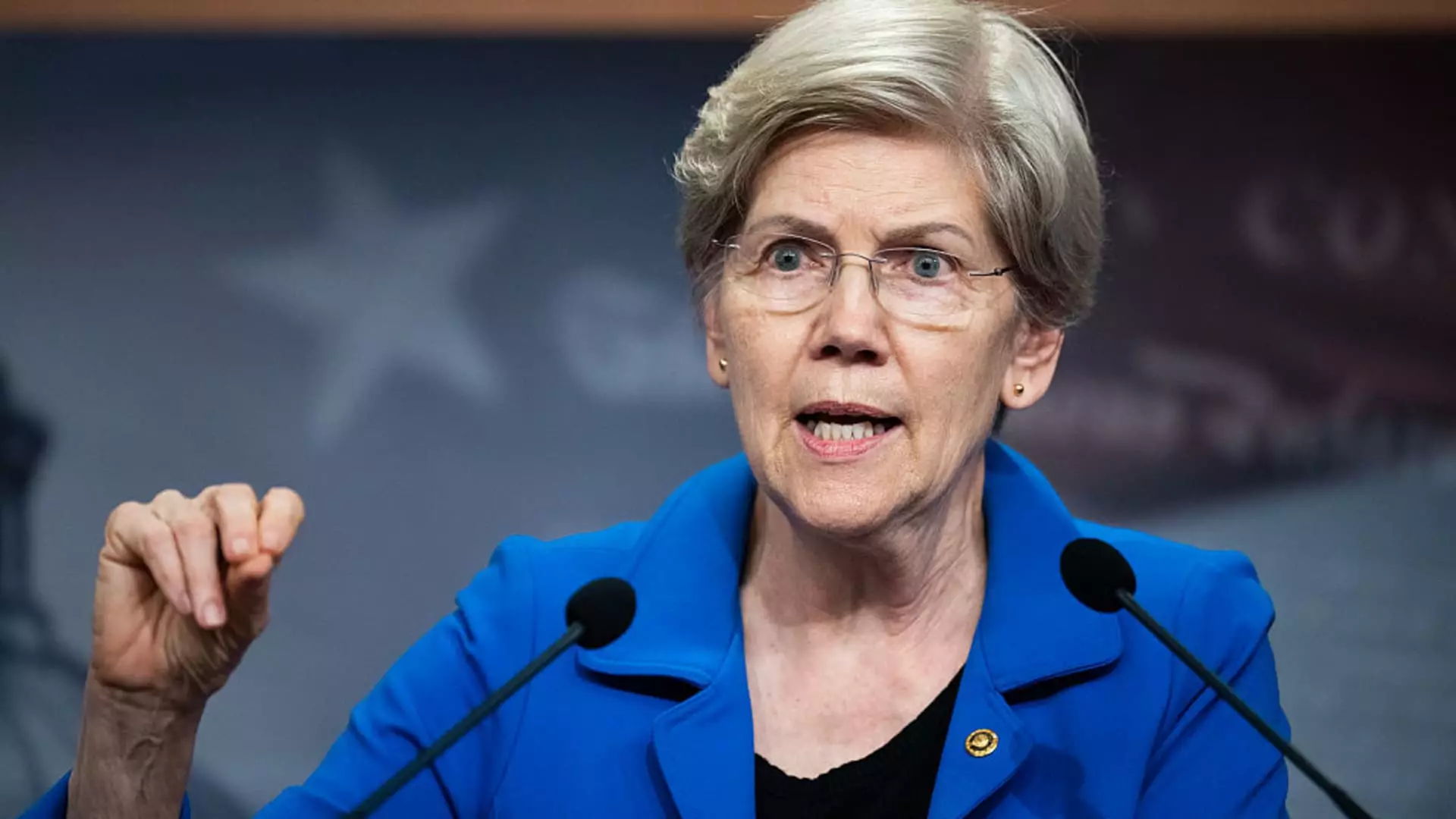The trade landscape under President Donald Trump’s administration has morphed into something far more sinister than the pursuit of economic fairness. Recent warnings from dozens of Democratic lawmakers suggest that Trump’s tariff policies resemble an intricate web designed to enrich his inner circle and foster corruption. This isn’t just political grandstanding; it raises profound questions about the integrity of the U.S. government under Trump’s leadership. The concerns articulated by lawmakers including Senators Elizabeth Warren and Bernie Sanders expose a layered complexity that extends beyond mere economic strategy into a worrying haze of favoritism and potential illegality.
Access and Influence: An Uneven Playing Field
The stark reality is that Trump’s tariffs have become an avenue through which political and financial allies find opportunities for personal gain. The Democratic lawmakers have explicitly stated their fears that these policies could evolve into a marketplace for influence. The idea that tariffs may be negotiated in exchange for political favors is not merely speculative; it illustrates a system that favors the powerful while undermining the principle of equitable trade for the average American. The decision to exempt certain products, such as smartphones from reciprocal tariffs, reeks of cronyism, particularly when companies like Apple see a boost in their stock prices as a direct result of these exemptions—and at the same time, maintain close ties with Trump himself.
A System Laced with Corruption Risk
As troubling as the concept of favorable tariff treatment is, the implications of these policies are even broader. Trump’s administration has made it clear that they can wield tariffs not just as tools of economic policy, but as weapons against political opponents. This creates an environment ripe for quid-pro-quo arrangements, wherein exemptions can effectively marry government policy with private greed. The allegations that Trump’s changing tariff policies provide the perfect cover for insider trading further illustrate the shrouded relationship between politics and business. A government that allows its officials the latitude to engage in self-dealing is one that risks disillusioning the very citizens it is designed to serve.
The Fight Against Corruption: A Call to Action
In this environment, Democrats find themselves fighting from a position of relative weakness; as the minority party, their ability to compel investigation into this corruption is limited. However, their letter to key administration officials serves as a critical call to action. It demands transparency regarding how the administration plans to prevent the exploitation of tariff policies for personal profit. This is not merely a legislative concern—it’s an ethical imperative that reflects the very foundation of American democracy. If we allow the administration to continue unchecked, what we perceive as a trade policy could devolve into a fountain of corruption, distorting free market principles and eroding public trust.
In a nation where government should embody the will of the people, any semblance of corruption threatens the legitimacy of our democratic structures. The evidence of misuse of tariff policy cannot be ignored. As citizens and democracy-loving individuals, it is essential that we demand accountability and integrity in our trade practices, ensuring that they reflect the values we hold dear rather than the whims of a few privileged insiders.

